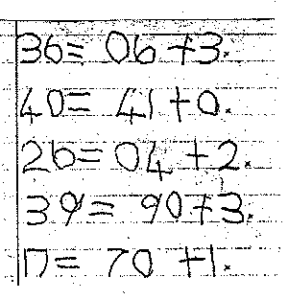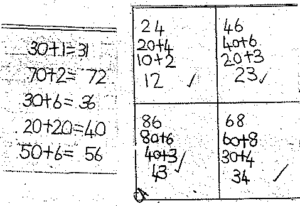
A decade ago, Jannes and his parents were standing at a crossroads. Due to severe learning disabilities, Jannes was referred to a special school. It might be different in other countries, but in South Africa, attending a special school can severely limit one’s choices for a career. Going to university is out of the question. His parents decided not to follow this road but to do Edublox. The result is that Jannes completed Grade 12 with university exemption and embarked on a B.Sc. degree in Mathematical Sciences. This is his story:
Jannes was supposed to start school in January. However, because his mother realized he was not ready for school, she requested that the school psychologist evaluate Jannes in November. His mother was told that, due to his age, Jannes had to start with Grade 1 the following year and that his problem would sort itself out. As a result, Jannes was not evaluated.
Grade 1:
During Jannes’ Grade 1 year, Jannes’s mother realized he had difficulties with reading, spelling, writing, and mathematics. When writing, he often reversed letters, such as s, f, and k. When writing, he started most letters and numbers from the bottom. He read word by word and reversed words when reading. He would lose his place if he did not use his finger and battled to find it again. His mother was worried about his progress, but she received no feedback from the school. Jannes passed Grade 1 with three Bs and four Cs.
Grade 2:
In his Grade 2 year, his parents received a letter from the school stating that Jannes needed remedial therapy. Since the school had no remedial teachers, it was decided that his class teacher would give him some remedial help during regular school hours. The principal also informed Jannes’s mother that although her son had been promoted to Grade 2, he actually should have failed Grade 1. The principal regarded him as “very weak.”
In March, Jannes was tested by the school psychologist for the first time. The school psychologist recommended remedial therapy, occupational therapy, and physiotherapy and referred Jannes for a neurological evaluation.
Jannes’s parents arranged for him to be evaluated by an educational psychologist. The psychologist’s findings were that Jannes fell within the moderate intelligence range. However, due to a significant discrepancy between his verbal and non-verbal intelligence scores, the educational psychologist diagnosed Jannes as follows: “…it can indicate aphasia, psycho-neurological dysfunction, fear of verbal exploration and language confusion.” The psychologist recommended a complete neurological examination, remedial therapy, and occupational therapy.
A visit to the neurologist was next, who found “definite neurological difficulties” and recommended remedial, occupational, and speech therapy. He also recommended that Jannes attend a special school.
His parents ignored the recommendation of special education and tried to help Jannes at home to get his work up to standard. He also received occupational therapy for three months.
In August, the school psychologist again summoned the parents and told them to stop all the extra help at home, including the occupational therapy, as the strain of all the pressure from the parents on the one hand and the workload on the other was becoming too much for Jannes. The parents complied with this request.
Jannes failed Grade 2. His parents were informed that he had to be transferred to a special class. The parents refused, and with the help of the school psychologist, he was transferred to another school close by, one with a remedial teacher. He would have to repeat Grade 2 and receive remedial therapy.
An example from Jannes’ math work:
Grade 2 (repeat):
Jannes found himself in a much bigger school, where he was one of 30 children. The principal informed his parents that, due to a long waiting list, Jannes could only receive further remedial therapy if he made adequate progress. At the end of March, after three months of remedial therapy, the remedial teacher described his rate of progress as “very slow.” Still, the principal agreed to let him continue with remedial therapy for another term.
Jannes started with Edublox in April. Because his parents had been criticized for their previous efforts to help him, they decided to remain silent about doing Edublox at home. Results started showing within weeks. In June, the remedial teacher reported that Jannes “shows no specific delays” and that his work was “up to standard.” By December, his spelling was noted to be above the class average.
At the end of the year, Jannes’s mother described his progress as follows:
“His handwriting has made a complete turnabout. Jannes rarely makes any reversals. His spelling and his mathematics have improved. He has started to construct proper sentences. His concentration and ability to recognize sounds and words have improved. The discrimination of sounds, which he previously found very confusing, such as ‘b’ and ‘d,’ is no longer a problem for him.
“Although he is still a slow reader, he no longer reads word by word. He does not reverse words when reading and does not lose his place when jumping from one line to the next.”
Examples from Jannes’ math work 4 months after starting with Edublox:
Grade 3:
Jannes continued with Edublox until April.
A decade later:
Jannes embarked on a B.Sc. degree in Mathematical Sciences. Well done, Jannes!
Edublox offers cognitive training and live online tutoring to students with dyslexia, dysgraphia, dyscalculia, and other learning disabilities. Our students are in the United States, Canada, Australia, and elsewhere. Book a free consultation to discuss your child’s learning needs.

